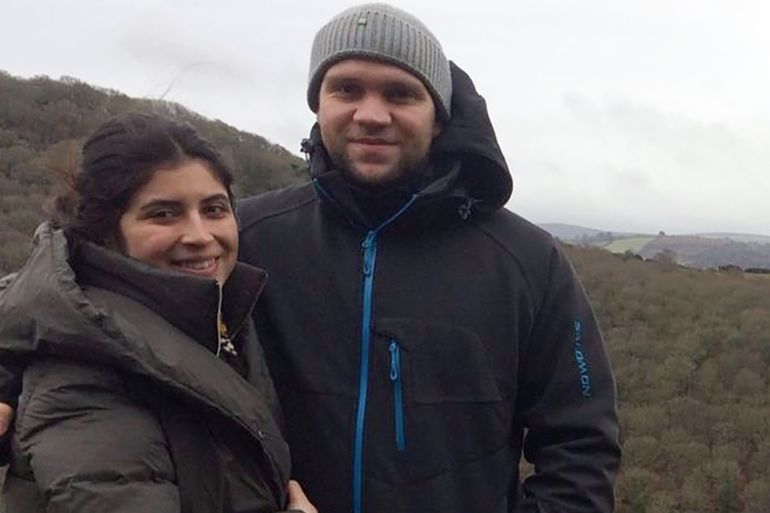UAE hints at freeing jailed UK academic in ‘amicable solution’
UAE ambassador to UK signals Matthew Hedges could be freed as part of an ‘amicable solution’ between the allies.

The United Arab Emirates (UAE) is reviewing a request for clemency from the family of British researcher Matthew Hedges, who was sentenced to life in prison recently on espionage charges.
The UAE’s ambassador to London, Sulaiman Hamid Almazroui, on Friday said Hedges’ family “have made a request for clemency and the government is studying that request”.
“We have an extremely close partnership with the UK,” he told reporters. “Because of the strength of that relationship, we are hopeful that an amicable solution can be reached.”
On Wednesday, a UAE court had sentenced 31-year-old Hedges, who was studying for a doctorate on the Gulf country’s foreign and security policies at Durham University in northern England.
He was arrested at Dubai airport on May 5.
Hedges’ wife Daniela Tejada has criticised British officials for their handling of the case, saying they had refused to defend her husband for fear of upsetting Abu Dhabi.
‘Extremely serious case’
“Matthew Hedges was not convicted after a five-minute trial as some have reported. This was an extremely serious case. We live in a dangerous neighbourhood and national security must be our top priority,” the UAE ambassador said.
“The government does not dictate verdicts to the courts,” he said, dismissing criticism of the judicial process in the UAE from Hedges’ family.
Britain said it hopes the UAE would respond positively to the request.
“We hope the UAE now looks favourably on the family’s request for clemency,” a spokesperson for the UK’s foreign office said on Friday.
Hedges’ family said the evidence presented against him consisted of notes from his dissertation research.
“Matt was held in an undisclosed location in solitary confinement for over five months, with no charge, no lawyer and very limited consular access,” Tejada said.
“The judicial system in the UAE and the UK cannot be compared. I was in the courtroom and the hearing lasted less than five minutes,” she added.
A life sentence for a non-Emirati entails a maximum of 25 years in jail, followed by deportation, according to the UAE’s state-run media.
UK-UAE ties threatened
The case threatens to strain the close relationship between London and Abu Dhabi. British Foreign Secretary Jeremy Hunt warned that the verdict could hurt relations with the UAE.
British Prime Minister Theresa May had earlier said she was “deeply disappointed and concerned” at the verdict in what is a key ally for Britain in the Gulf region.
The UAE is strategically located on the east coast of the Arabian Peninsula, and the British military trains with the Emirati troops.
The emirates of Abu Dhabi and Dubai are home to a large number of British nationals, who work in areas ranging from finance to sports.
Thousands of British tourists visit the Gulf country each year, attracted by its sunny beaches, luxury hotels and theme parks.
Ties also include lucrative defence contracts that are important to UK companies.